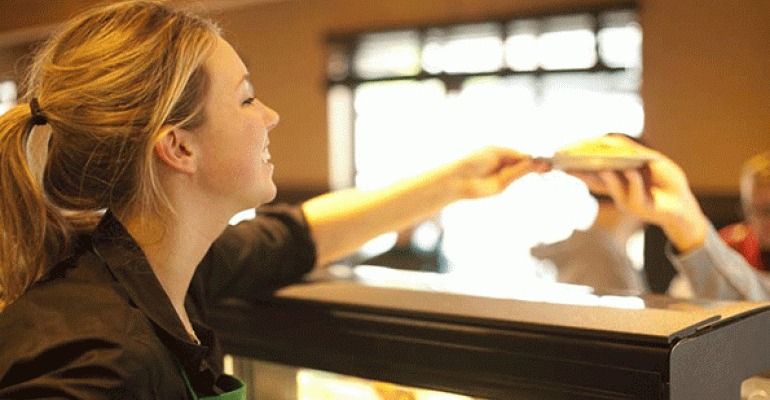Starbucks Corp. on Monday revealed details on its move to a private health care exchange designed to give employees more choice and save them money.
The Seattle-based chain last week said it would expand health care benefits for eligible U.S. workers starting in October, in addition to a 5-percent increase in pay. Coffeehouse employees that work 20 hours or more per week are eligible for health benefits.
The company’s new online benefits platform will be offered by Aon, and will allow workers to choose from as many as six national and regional carriers and five coverage levels, depending on their budgets and preferred carriers.
Currently, the plan in the U.S. is administered by Premera Blue Cross, though employees in California and Hawaii have some additional options. The Premera plan includes three tiers of coverage: bronze, silver and gold.
Premera will still be an option, Starbucks officials said. But workers will also have a broader selection of plans to choose from, depending on their health care needs.
The company estimate that eligible employees could save up to $800 annually individually, and families could save up to $2,600 annually. Starbucks employs more than 160,000 in the U.S. across about 7,600 company-owned units.
“Providing industry-leading benefits for eligible full- and part-time partners is a cornerstone of who we are as a company,” said Ron Crawford, Starbucks’ vice president of global benefits, in a statement. “Much like a travel site, our partners will be able to navigate an easy to use online platform to choose between more insurance carriers and coverage levels at more competitive prices to help them find the right plan for their own needs.”
Critics of such exchanges say it breaks the model that makes insurance work: if younger, healthier workers opt out of coverage, it raises the costs for older, less healthy workers.
That impact can depend on how much employers contribute, however. Starbucks officials said the company will continue to fund about 70 percent of the premium costs and cover 100 percent of preventive services.
In addition, employees will have access to healthcare advocates, a free and confidential service available year-round to help workers choose and get the most out of their healthcare plans.
According to the Wall Street Journal, a growing number of large employers are moving to such private health care exchanges, including Darden Restaurants Inc., Walgreen Co., and Sears Holding Corp.
But private exchanges haven’t caught on as quickly as some expected, in part because of an impending tax on high-cost health plans scheduled to take effect in 2020.
Scott Brown, managing director at consulting firm Accenture PLC, told the Wall Street Journal that many employers aren’t yet convinced that the exchanges will reduce the cost of health coverage, as opposed to transferring a greater share of the expense to workers.
Contact Lisa Jennings at [email protected]
Follow her on Twitter @livetodineout




